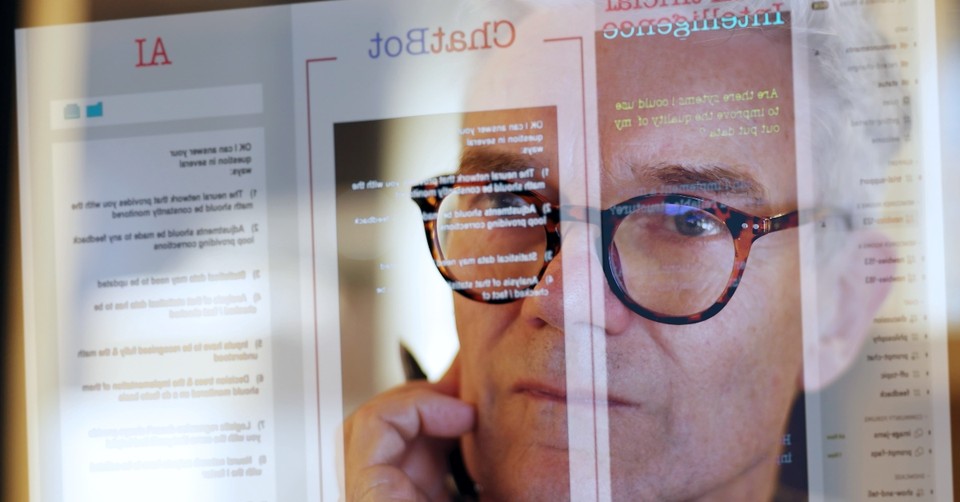Why Interpreting Tongues with ChatGPT Is Not Supernatural

In a recent video, Shawn Bolz claimed that there is an online trend in Charismatic and Pentecostal Christians who have asked Chat GPT to speak in tongues. Bolz, who was previously accused of fabricating prophecies, shared how a friend of his informed him that Chat GPT was able to interpret her speaking in tongues. He also claimed to have witnessed one case where ChatGPT translated someone's prayer language that was "ancient Sumerian …that somehow ChatGPT understood."
"I think that's really wild that there are languages being spoken by Christians in their prayer language and we're seeing AI catch up to some of the spiritual fruit that we have as Christians," he said. "Especially those of you who are charismatic or Pentecostal, and you guys believe in speaking in tongues, it's pretty profound."
It is definitely a wild claim given that an artificial intelligence chat GPT can interpret the Holy Spirit since it can interpret languages. After all, we read in the book of Acts during the Day of Pentecost where 120 believers gathered together, "And divided tongues as fire appeared to them and rested on each one of them. And they were all filled with the Holy Spirit and began to speak in other tongues as the Spirit gave them utterance" (Acts 2:1-4).
As this transpired, there were devout men who from every nation under Heaven heard the Christians and were "bewildered" because they were "speaking in their own language"
"And they were amazed and astonished, saying, "Are not all these who are speaking Galileans? And how is it that we hear, each of us in his own native language? Parthians and Medes and Elamites and residents of Mesopotamia, Judea and Cappadocia, Pontus and Asia, Phrygia and Pamphylia, Egypt and the parts of Libya belonging to Cyrene, and visitors from Rome, both Jews and proselytes, Cretans and Arabians—we hear them telling in our own tongues the mighty works of God." And all were amazed and perplexed, saying to one another, "What does this mean?" (Acts 2:7-12)
At the same time, however, there were others who mocked the believers, claiming "they are drunk with new wine." (Acts 2:13)
This supernatural phenomenon was the fulfillment of a prophecy dating back 400 years in the book of Joel, as addressed by the apostle Peter, who states:
In the last days, God says,
I will pour out My Spirit on all people.
Your sons and daughters will prophesy,
Your young men will see visions,
Your old men will dream dreams.
Even on My menservants and maidservants
I will pour out My Spirit in those days,
And they will prophesy.
I will show wonders in the heavens above
and signs on the earth below,
blood and fire and billows of smoke.
The sun will be turned to darkness,
and the moon to blood,
before the coming of the great and glorious Day of the Lord.
And everyone who calls on the name of the Lord
will be saved. (Joel 2:28-32; Acts 2:17-21)
Now, tongues in the Bible have to do with the speaking of other languages, which is why those who heard the believers were surprised that they heard a variety of such speech spoken in different countries in one place. Nonetheless, it was evident that something supernatural had taken place. Tongues are also considered a spiritual gift, as well as the interpretation of tongues, as the apostle Paul discusses in 1 Corinthians 12-14. Tongues have also been debated as something of a private or unknown prayer language typically practiced by Charismatics or Pentecostals. In contrast, others have refuted this version of tongues and stated that the spiritual gifts as a whole have ceased since the New Testament.
Debate aside, equating the interpretation of tongues with Chat GPT raises several issues, including the danger of overreliance.
Not the Holy Spirit
The claim is that Chat GPT can interpret speaking in tongues. But the issue here is that it is not the Holy Spirit. Just because it can interpret languages, nothing supernatural is taking place here. An AI is merely a database; it does not have a mind of its own and can only do what it is programmed to do. As innovative as technology may be, it is not and can never be supernatural. It is man-made, not of God. It may have tremendous capabilities, but it does not have supernatural capabilities, nor is it meant to. Meanwhile, the Holy Spirit is not a database nor an impersonal force, but the third person of the Trinity. Jesus promised the coming of the Holy Spirit following His departure from earth (John 14:15-31).
Not the Church
Tongues and other spiritual gifts are meant for the edification of the church as practiced among believers. This would not apply to Chat GPT as it is merely AI, thus there is the risk of becoming overdependent on it rather than growing together as the body of Christ. The writer of Hebrews encourages Christians not to neglect to meet together, as is the habit of some, but to encourage one another, and all the more as you see the day drawing near (Hebrews 10:25). Therefore, we edify each other when we come together as a church as we come to seek the Lord.
Not a Means of Grace Given to the Church
When discussing means of grace, we discuss what God has provided for his church for her growth. He has given us His Word, prayer, and the sacraments to strengthen the body, not AI. The preacher must devote himself to the study of Scripture in preparing a sermon for the church. To let AI do all the work shows a lack of devotion to one's calling as a minister who is to study to show oneself approved (2 Timothy 2:15).
Conclusion
As with anything AI-related, we must not elevate it to the level of God. It is becoming a troubling trend to see how it's becoming incorporated in the church, whether it is an AI pastor, using AI to write sermons, or even an AI Jesus that people can seek. But it is not God, nor should it be treated as such. It is merely a tool, nothing more. There is nothing inherently wrong with using AI, but it is wrong and even sinful to attempt to equate it to God. Scripture says, "There is none like the Lord, and none beside Him (1 Samuel 2:2)." He is incomparable and unmatchable. There is no such thing as a close second; nothing can or could ever compare. So let our dependence always be on Him. After all, it is through His Son Jesus that we have access to Him. It is our greatest privilege as sons and daughters of the Most High God. So let us be careful about where we set our hearts because it matters.
Related Article: New Claims of AI Interpreting Tongues Stir Debate among Believers
Photo Credit: ©iStock/Getty Images Plus/Laurence Dutton

Originally published July 18, 2025.







